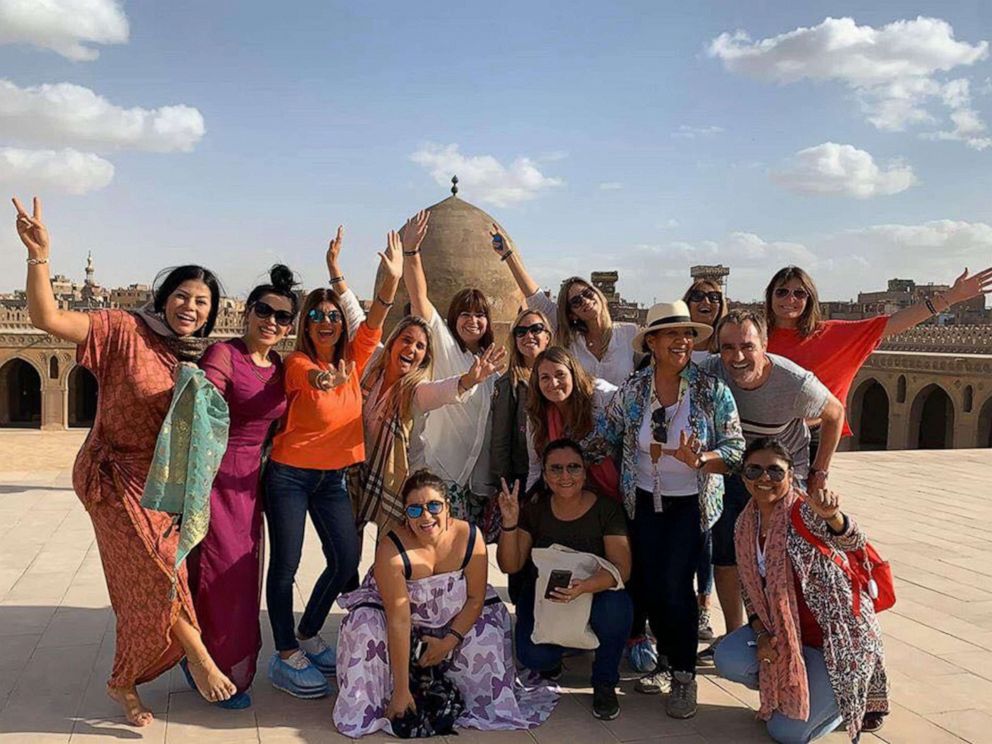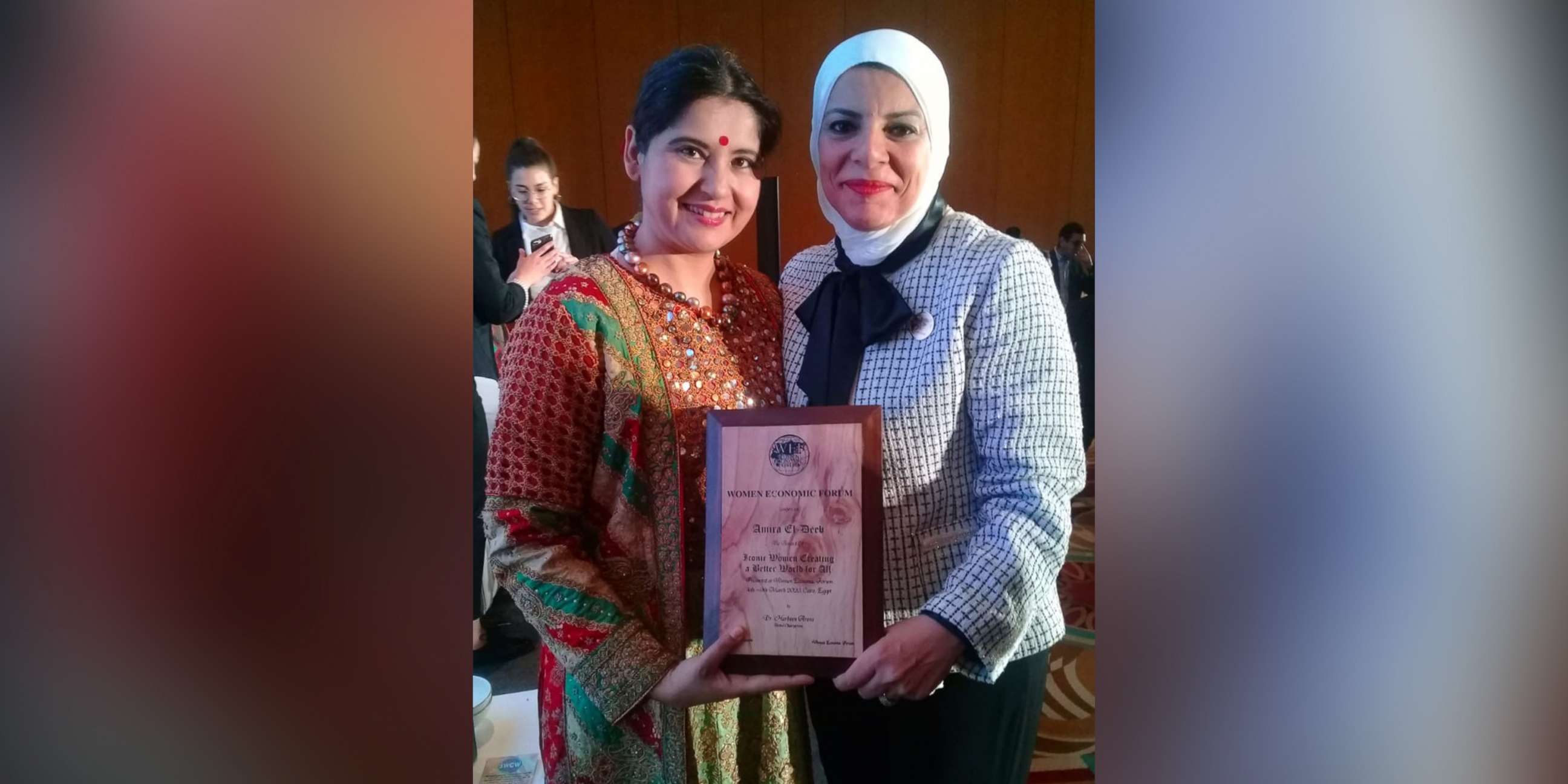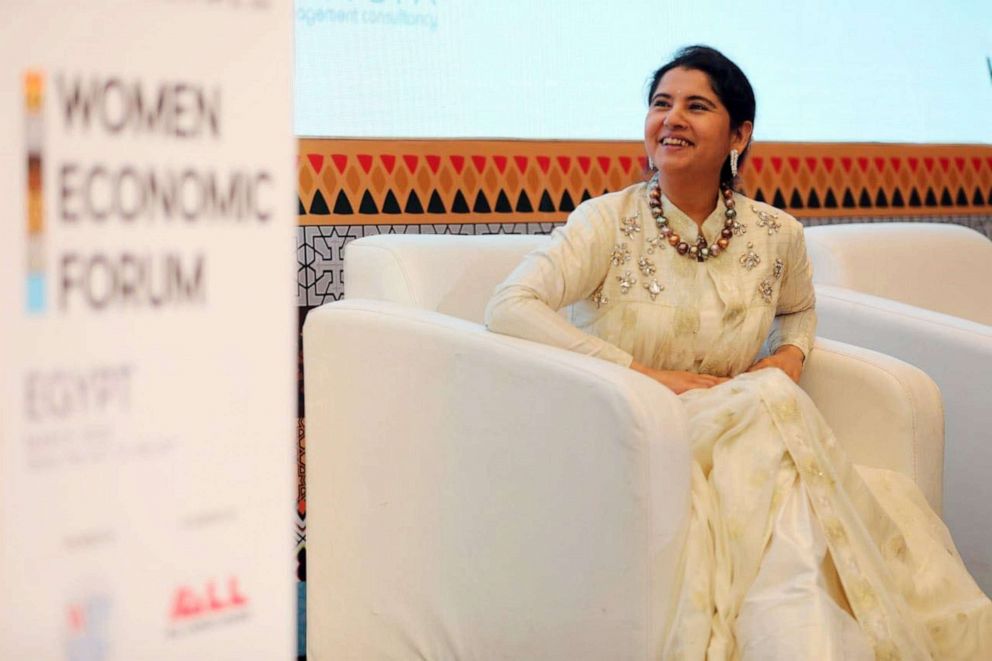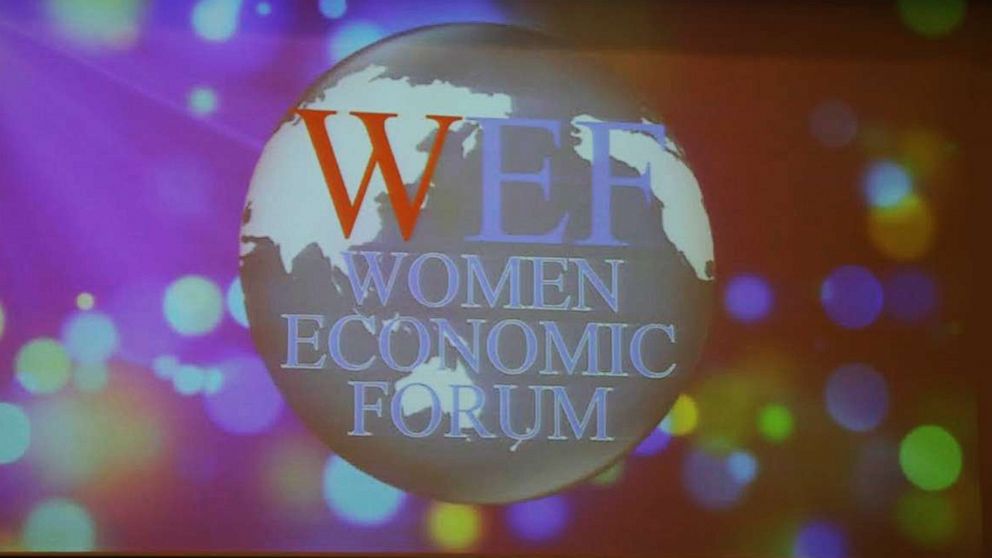Women Economic Forum brings 1,500 women business leaders to Egypt
Organizers say it reflects women's growth within the Mideast business community.
The Women Economic Forum, an annual global business conference for women held in India since 2015, moves to the Middle East this week.
More than 1,500 women business leaders from over 120 nations are in Cairo this week for workshops on employment, international trade, technology and finance. Organizers say the move underscores the ascendance of women in the Middle East business community.
“I have met some really exceptional women in Egypt,” said Women Economic Forum Founder Harbeen Arora. “And we would like the world and our global community to learn about them.”

At the age of five, Amira El-Deeb, creator of Egypt’s first certificate in startup management, already knew what she wanted to be when she grew up. Helping in her mother’s pharmacy clinic, she aspired to become a pharmacist and encourage women toward entrepreneurship. At the time, women starting and operating their own businesses in Egypt was rare.
However, since 2011 Egypt has taken significant steps to empower women entrepreneurs. By 2030 Egypt plans to have women in 40% of their workforce, compared to their current 22.9% participation, according to the Public Mobilization and Statistics. As of 2019, entrepreneurship courses were made a requirement for all Egyptian university students.
“Back when I started we were paving the way for others,” said Yasmine El-MeHairy, co-founder and CEO of SuperMama, launched in 2011. “I look around now and I’m surrounded by mentors and mentorship groups.”
Before 2011, experts say Egypt had very few support systems in place for young female entrepreneurs. Television programs like Shark Tank, with opportunities to pitch new ideas and seek funding, were nonexistent.

Dina El-Mofty founded Injaz, Egypt’s Junior Achievement program, in 2003 to encourage more young people toward entrepreneurship. Injaz, which means “achievement” in Arabic, has trained almost 700,000 Egyptian students in the last decade by bringing businessmen and women into students' classrooms as mentors.
For years, El-Mofty noticed the teams of university students pitching business ideas were made up entirely of men. In 2011 she began requiring each team to have at least one female participant.
“We are a risk-averse culture that encourages the traditional professions -- doctor, engineer,” El-Mofty said. “But once a couple of girls and their success stories were highlighted, this created a social shift in families, who became more open to encourage their daughters to take entrepreneurship on. It was amazing to see.”
After the Egyptian Revolution of 2011, El-Mofty saw an increase in the number of graduates who were keen to launch and start their own businesses. And by 2015 Injaz saw teams made up entirely of women. In the last nine years, Injaz graduates have launched 85 startups tackling areas from waste management to software development.

Yara Yassin and Rania Rafie, two Egyptian best friends, founded one of these successful startups while still at their university. Up-Fuse is an up-cycling program that turns plastic bags into trendy reusable purses and backpacks. Today they have 20,000 followers on social media and in 2019 they up-cycled nearly 200,000 plastic bags.
After noticing this growing interest in startups among Egyptian youths, El-Deeb, now the assistant director of the Career Development department at The American University in Cairo (AUC), launched Egypt’s first startup management certificate program in 2018.
“We had reserved a very small hall for the launch of the certificate,” El-Deeb said. “I was surprised when we had more than 1,000 attendees -- all undergraduates between the ages of 16-26. ... We ended up filling the biggest hall in AUC.”
Tekeya is a mobile app launched by millennial Meenna Shahin. Since 2019, Tekeya has donated to Egyptian families in need more than 900 meals that otherwise would have been thrown away.
Another startup, the Mersal Foundation, is closing the gaps in Egypt’s health system. Founded in 2015 by entrepreneur Heba Rashed, Mersal has provided thousands of Egyptians with financial support for much-needed health care.

All of this has paved the way for events like the Women World Economic Forum.
“It’s the rise of women in the decades going forward,” El-Mofty said. “You see it everywhere -- women coming to the forefront as leaders [and] entrepreneurs, and they are unstoppable.”
Speakers at this week's forum include Heba El Sewedy, regarded as the “Mother Theresa of Egypt,” and Dr. Rania Al Mashat, Egypt’s Minister of International Cooperation. Arora, the event's founder, says the forum is about creating a spirit of sistership and erasing stereotypes and prejudices.
“Women walk away saying, ‘I’ve never felt this respected in my life,’” Arora said. “Telling a woman, 'I see you, I hear you as a person,' sometimes that’s all we need."



